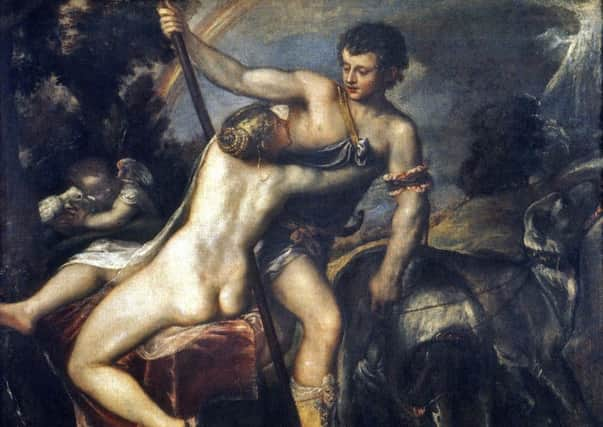Book review: Shakespeare And The Resistance, by Clare Asquith


Asquith’s book has its moments of conspiracy theory; but Shakespeare’s era was a time of conspiracies. Its great virtue is in concerning itself for the most part with two of the works of Shakespeare that have little traction on the public imagination – the two long narrative poems, Venus And Adonis and The Rape Of Lucrece.
There is a degree of decoding rather than reading – for example, there are her comments on whether or not the appearance of a cat in a portrait of the Earl of Southampton, who never by all accounts had a cat when imprisoned after the Essex Rebellion, might be a signal towards Sir Henry Wyatt, around a century beforehand, who apparently had one.
Advertisement
Hide AdThat Shakespeare was close to the “Essex Faction” is not in dispute. Both the long poems are dedicated to Southampton, and the Sonnets are famously and enigmatically offered to Mr WH. Some critics have enthused over the idea that Southampton – Henry Wriothesley – had been anagrammed as “WH”. Oscar Wilde had much fun with the whole debate in his brilliant essay The Portrait Of Mr W.H. But before Essex’s attempt at a coup d’état, the plotters certainly did all sit down (or stand up) to watch Shakespeare’s Richard II, about a weak monarch and a strong, home-born usurpation.
People should read Shakespeare’s long poems; but should they read them as political allegories under a repressive state? There is some meat in this, but perhaps more gristle. In The Rape Of Lucrece, Asquith discerns a virgin violated by a tyrant, and this means the Church despoiled by Henry VIII. In Venus And Adonis, she finds a noble youth – Essex or Southampton – being forcibly wooed and then maimed by an aging goddess. I have some sympathy with the idea of Shakespeare being uncomfortable with the reign of the aging Elizabeth. But when one gets down to things like the fact that red and white are mentioned in Lucrece (“to praise the clear unmatched red and white”), to extrapolate this into an allegory of the red and white roses of Lancaster and York is a bit of a stretch. After all, Shakespeare uses the word red 94 times and the word white 172 times – is that any indication of which side he supported?
The question which this book elegantly side-steps is about Shakespeare’s religious beliefs. Essex was a Protestant who believed in toleration; Southampton a Catholic who maintained his faith; but they were allies against Elizabeth. It is certainly true that the Reformation had had serious consequences – a kind of theological post-traumatic stress disorder – and some people did not know now what they were. What did Shakespeare think if he had seen his own father whitewashing the church murals in Stratford, and then been fined for non-attendance? The ghost of this book is dealing with the politics and not dealing with the religion sufficiently. Sir John Harington – inventor of the flush toilet and a rather good poet, if one cares to read his translation of Ariosto – described himself as “a protesting catholic puritan”. That seems to me to summarise the position of Shakespeare: interested in the new, caring for the old, decisive about the true.
This book did turn me back to the poems and made me look at them in a different way. When Asquith writes about the hare for whom “danger deviseth shifts, wits wait on fear”, I rather didn’t care if that was a symbolic reading of the state of recusant Catholics, but adored the subtlety of the verse quoted.
It did make me glad that she referenced Dryden’s The Hind And The Panther – if you think Shakespeare’s narrative verse isn’t studied enough, a point made repeatedly here – try Dryden. The most fascinating point here is the link between Essex and James VI and I, especially since Shakespeare wrote, as a member of the King’s Men, for him.
So, if you can winkle out a connection between Elizabeth’s enforcer in chief, Lord Burghley’s notes, and the same phrases given by Polonius in Hamlet (Corambis in the earliest edition) then go ahead. It doesn’t make his death any less significant in the moral architecture of the play.
Advertisement
Hide AdThough there is much to make you rub your temples and stroke your chin in this book, it fundamentally sees Shakespeare as a puzzle to be solved, not a writer to be enjoyed. The oddest part is Asquith’s continued assertion that modern readers cannot appreciate the narrative poems. This does down the intelligence of readers. Renaissance era poetry is not as difficult as she suggests.
Shakespeare And The Resistance, by Clare Asquith, Public Affairs, £21.99